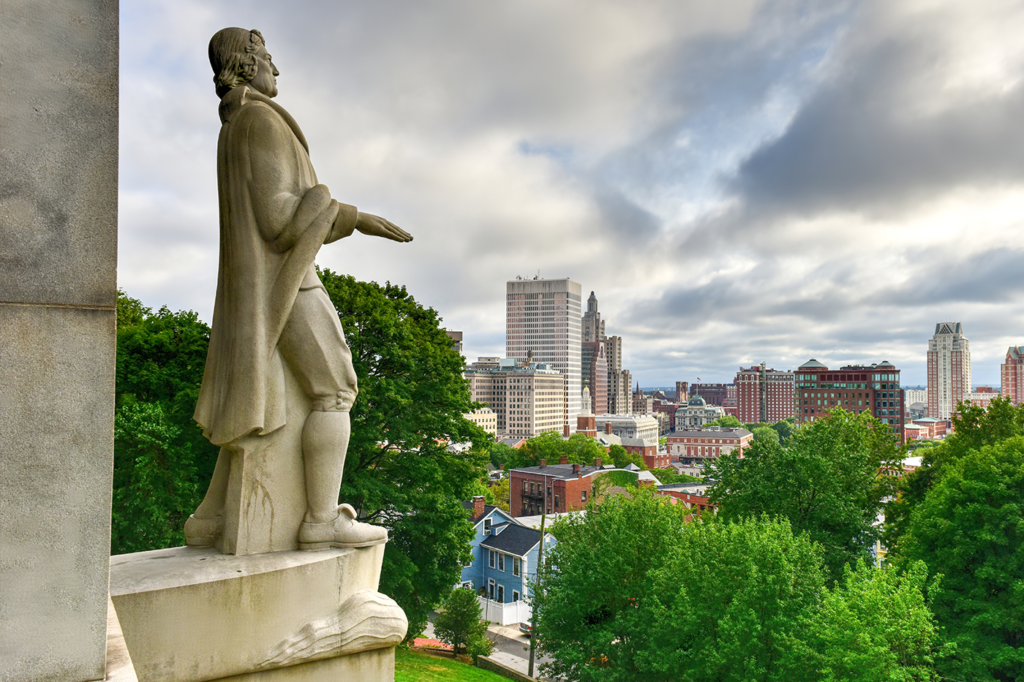The political climate over the past few years has left some Americans from every corner of the spectrum united in one desire: for a return to civility in public discourse. Yet, there are others who view civility as hogwash—a vice veiled as a virtue, which people invoke to justify specious and harmful opinions and beliefs. Recent articles from The Atlantic, Washington Monthly, and Slate all suggest that a return to civility is not in the best interest of any society, and especially not that of the vulnerable. For example, Dahlia Lithwick of Slate argues, “When it’s [civility] sought now, you can be certain it’s coming from the powerful asking you to be civil as they take away your rights and destroy lives. . . . That the call for civil discourse has been weaponized to chide and marginalize the vulnerable makes it an apt metaphor for a decade that started with the faint promise of bipartisan unity and closes with promises of partisan annihilation.”
Civility enjoys its advocates and suffers its discontents. Yet, in this supposed crisis of civility, there seems to be little consensus about what the term means. Is it kindness, respect, or just being nice? Or, perhaps, is there something more to civility that predates our contemporary moment?
In 1635, Massachusetts authorities banished Roger Williams—a sentence that necessitated Williams’s return to England where he most likely faced imprisonment or execution. Williams, all too familiar with what awaited him in England, fled into the wilderness during a bitter New England winter. With his wife and a few of his followers accompanying him, he sought refuge among the Narragansett Indians whom he had befriended during his time in Massachusetts.
What was Williams’s crime? He held and openly espoused religious and political beliefs that violated the established orthodoxy in Massachusetts. As a Separatist, Williams traversed the Atlantic in hopes of escaping what he believed was the corrupt and popish Church of England. When he arrived at Boston in 1631, the First Church of Boston immediately offered him the position as its pastor—a position he turned down because he believed the church remained too closely aligned with the dogma and traditions of the Church of England. He made his way to Salem, where he eventually settled and began to preach and teach. Little did he know that a Mr. John Cotton, who arrived two years after Williams, was offered the same post in Boston. Cotton became Williams’s rival and interlocutor in the years to come, when the two clashed in a now historic debate over doctrine, political theology, and religious liberty.
Start your day with Public Discourse
Sign up and get our daily essays sent straight to your inbox.From the time of his arrival to the time of his banishment, Williams preached against the religious practices and mores of Massachusetts. He pointed out what he believed were grave ecclesial errors and questioned the legitimacy of the English king to take land away from the Native Americans. After the religious leaders attempted to silence Williams, they charged him with blasphemy, excommunicated him from the church, and banished him from the colony. Fleeing into the wilderness, Williams failed to comprehend how his theological and political beliefs in any way jeopardized his commitment to the colony. He had believed that, notwithstanding his disagreements over fundamental theological issues, his ability to live faithfully as a member of the community and society was secure.
In time, Williams came to see this bitter winter flight as a providential act of God. He secured, by peaceable transaction with the Native Americans, a settlement for himself, his wife, and his followers in what was soon to become Rhode Island. Years after its settlement, Williams recorded his initial thoughts: “And having, in a sense of God’s merciful providence unto me in my distress, called the place Providence, I desired it might be a shelter for persons distressed for conscience.” From that moment forward, religious liberty was for Williams no mere political ideal advocated by one suffering persecution; he now went about the business of leading and establishing a place of religious freedom—a place where Catholics, Protestants, Jews, Turks, and even Quakers could dwell together as neighbors.
Williams contended that the stability of religious freedom depended on the health and promotion of the virtue of civility—specifically, natural civility. Calling Williams’s ethic “natural civility” captures how he understood the relationship between virtue and the natural law—a universal, discoverable, and moral law that, when followed, brings about human flourishing. Williams thereby grounded religious freedom in ontological moral first principles, clarifying that religious liberty precedes the laws of particular states.
Williams defined natural civility as a set of public virtues that enabled people from divergent cultures and faiths to live together peaceably. All mankind, according to Williams, was capable of faithfulness, obedience, and honesty. These virtues guided men and women in peaceful concord, notwithstanding the public expression of their differing religious practices and convictions. The moral imperative of religious freedom arose from this understanding of natural civility. Catholics, Protestants, Jews, Muslims, and pagans ought to freely and publicly express their religious convictions, because a common set of virtues enabled people from fundamentally different religions to share citizenship in the same nation and live as neighbors in a shared community. A Catholic and a Protestant were capable, as fellow citizens, of treating each other in virtuous ways, regardless of the deep religious disagreements between them.
Williams therefore espoused a political theology that, in his words, erected a wall of separation between the spiritual and the corporeal. As long as an individual’s religious convictions in no way physically threatened the community, he or she remained free to openly and publicly express his or her religious convictions, no matter how repugnant to others. Indeed, Williams’s conception of natural civility promoted the free expression of ideas between people of diverse backgrounds and religious beliefs. Without this commitment, a society would soon find itself on the brink of crushing the human conscience under the weight of state-sponsored coercion. The result of such actions, Williams argued, was either a nation of hypocrites or violent civil unrest—the latter a reality that besieged Williams’s seventeenth-century world in the violent conflicts of the Thirty Years’ War and the English Civil War. Indeed, Williams time and again pointed to the religious wars of his day as evidence that, if society failed to uphold natural civility and protect the freedom of the conscience, it brought “all the world into combustion.”
This was by no means the common view of his time. Williams’s rival John Cotton believed that both the church and the civil government bore the solemn responsibility to rid the community of any person guilty of theological error. Heresy threatened not only the church but larger social concord. Indeed, the document An Abstract or the Lawes of New England charged the civil magistrate with the duty to punish heresy and blasphemy with death, “because such an Heretic no less than an Idolater seeketh to thrust the souls of men from the Lord their God.”
For Williams, this standard required too much of the citizen, especially of the unregenerate or those individuals who did not hold to the prevailing theological commitments of the religious establishment. Compelling men and women into a socially prescribed system of belief, in Williams’s words, amounted to “soul rape.” Moreover, Williams rejected the claim that one’s capacity for faithful citizenship flowed from assent to a mandated orthodoxy. Because of the natural law inherent in all mankind, such coercion was not only unnecessary, but placed the state in a precarious situation. Williams argued that the use of the civil sword to suppress theological dissenters, far from securing the peace of a community, historically led to civil unrest.
Instead, Williams argued, “Methinks experience . . . might tell us how peaceable and just neighbors and dealers many thousands and millions of Jews, Turks, Antichristians, and Pagans are to be found, notwithstanding their spiritual whoredoms, witchcrafts, &c.” Faithful citizenship, therefore, flowed from the natural “moral goodness” attainable by all humanity. To be sure, Williams held to the doctrine of total depravity—he had a keen awareness of the power of sin and the devil. Yet, he also believed that humanity bore the image of God, which by God’s grace inclined the hearts of even pagans toward acts of virtue. During his time with Native Americans, Williams observed that though, in his words, the Narragansett worshiped the devil, they upheld the institution of the family as essential for their community; they abstained from drunkenness and sexual promiscuity. He said that he did not see among the Indians the sins and vices that pervaded the “Christian” nations of Europe.
Williams’s natural civility, moreover, protected the unfettered expression of disagreement, contempt, and even disgust toward other belief systems and religious faiths. In other words, civility for Williams did not mean to veil the differences within a pluralistic community. Instead, his civility meant to foster a community where men and women freely engaged in meaningful disagreements and debates. Williams himself used, by modern estimations, uncivil language when he publicly referred to his opponents as spiritual whores and worshipers of the devil. As uncivil as that language sounded, it was for Williams the expression of a society governed by natural civility—a civility that did not demand more of its citizens than they were capable of, while simultaneously protecting the free expression of their religious commitments. Williams believed that societies flourished when each and every one of their citizens enjoyed the freedom to openly practice their deepest religious convictions, and even to publicly proselytize.
We in 2020 have much to learn from Williams’s understanding of civility. The suppression of individual conviction, far from unifying a society, erodes the foundation of peace and concord. Civility was, for Williams, not so much about niceness or respect but the shared commitment of each citizen to protect the rights of conscience of their fellow citizens. This kind of environment certainly leads to disagreement and even heated arguments, but it also allows for people from divergent backgrounds to come together in meaningful debate and dialogue. We may not like each other, but as Williams believed, we can strive together as neighbors and common citizens. This is not easy, nor was it in Williams’s day. Without this commitment, however, Williams believed, one group after another would soon suffer the swift sword of retribution. Without this commitment to the natural law—to natural civility—the freedom of the conscience died, and with it, civil peace.













